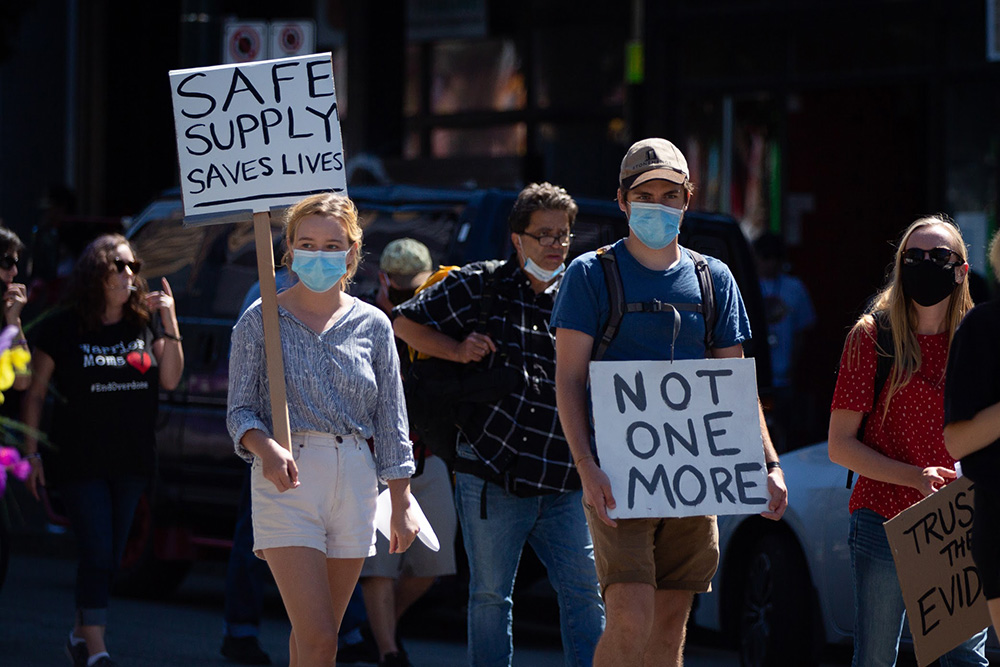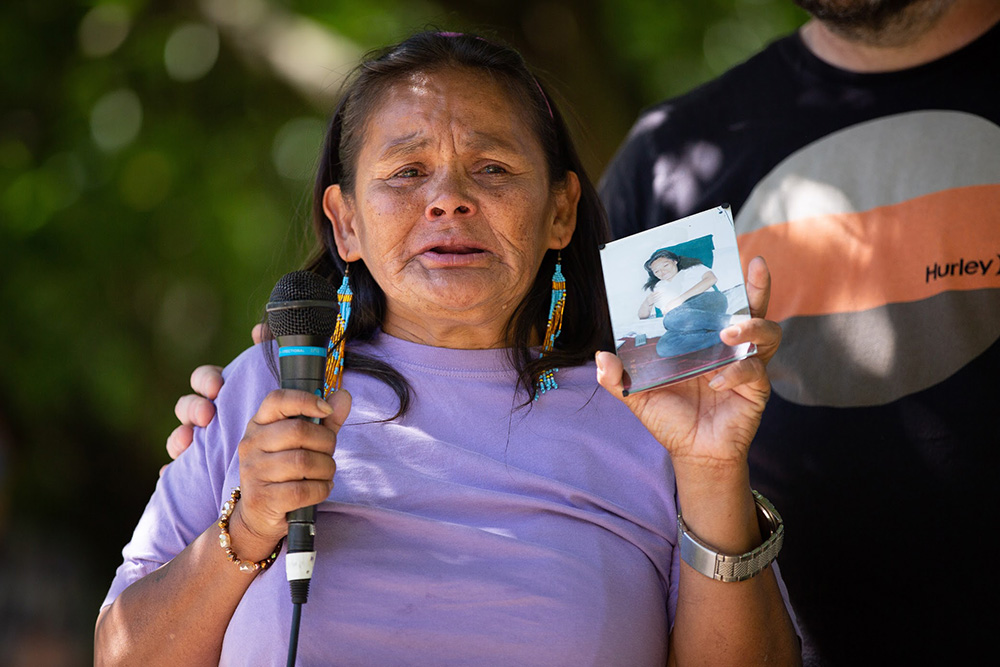It’s been almost five years since the overdose crisis was declared a provincial health emergency in British Columbia. Five years of inaction that show we really don’t much care if people who use drugs die.
The year before the emergency was declared, 529 people died of overdoses. This year, 1,716 people lost their lives, the highest toll since the crisis began, the B.C. government reported today. Since the emergency declaration, about 6,560 people have died.
We could have saved thousands of those lives. But we didn’t make the effort.
The B.C. government marked the record number of deaths with yet another political gesture.
It leaked the fact that last week Sheila Malcolmson, the minister of mental health and addictions, had written federal Health Minister Patty Hajdu to ask if the Liberal government would consider using its power to decriminalize possession of drugs for personal use in B.C. (So far, the Trudeau government has rejected requests to decriminalize.)
The letter was written a week ago; the leak seems intended to create the impression the government is actually doing something about a crisis it has largely fumbled.
Decriminalization would save lives. Substance users would be less likely to use alone, reducing overdose risks. Police — theoretically — would no longer seize their drugs, a move which now simply pushes them to more desperate measures to replace them. Stigma would be at least slightly reduced, allowing a better chance of connecting to supports and services.
Those points were all made in an April 2019 report by provincial health officer Dr. Bonnie Henry that called decriminalization “an important additional step to stem the tide of unprecedented deaths.”
Henry called on the provincial government to immediately use its existing powers to decriminalize possession of illicit drugs for personal use and said, “The province cannot wait for action at the federal level,” she wrote. “Immediate provincial action is warranted.”
It took the NDP government less than 24 hours for the government to say no, with no explanation beyond saying it was Ottawa’s issue.
And it took the B.C. government 20 months even to get around to writing Ottawa to ask for an exemption from drug laws against personal possession. In that time, more than 3,450 people died of poisoned drugs.
The issues are complicated, politicians say. It takes time to respond. We need training, reports, planning. As people die.

But Henry declared a COVID-19 health emergency on March 17. The next day, the government declared a state of emergency. On March 20, a range of businesses were ordered to close. On March 23, less than a week after Henry’s declaration, the government announced $5 billion in pandemic funding. Within the next two weeks, mandatory quarantines were imposed, long-term care home orders were issued, emergency health-care centres established, and schools closed.
There weren’t excuses and foot-dragging, planning and studies and consultations. There was action to address an urgent health crisis.
Contrast that response, for example, with the province’s slow, tiny efforts to provide access to prescribed drugs that users could know were safe. An expansion of safer supply programs was announced in mid-September, along with a promise of more overdose prevention sites.
More than four months later, the promises have not been fulfilled. In that time, about 680 people died.
What’s different about the poisoned drug crisis, which has been far more deadly? Why did the government listen to Henry on COVID-19 and ignore her on overdose deaths?
Because our society doesn’t much care about people whose lives are ended by poisoned drugs.
Premier John Horgan reflected a common attitude in July when he was asked about the contrast between the province’s responses to the two crises.
“We have an insidious virus that affects anyone at any time, and we have an opioid crisis that involves people using drugs,” Horgan said. “Those are choices initially, and then they become dependencies... I think we’re talking about two separate things here.”
Horgan apologized the next day, saying he was sorry he “mischaracterized the challenges of addictions.”
But his initial response reflected the widespread and utterly wrongheaded attitude based on the idea that drug dependency is the fault of people’s bad choices.
The 6,500 people who have died since the emergency was declared didn’t decide one day to risk their lives. They sought relief from trauma or pain or sadness. And a choice at 18 should not become a death sentence.
This isn’t just the politicians’ fault. If more of us cared, they would too.
The government has tended to blame the pandemic for the increase of overdose deaths in 2020 and claims credit that the number of deaths in 2019, at 984, were down sharply from the previous two years.
But a government’s job is to respond to such crises. And the 74-per-cent increase in deaths show it failed dismally. (As does the fact that Ontario’s per-capita overdose death rate is less than the rate in this province.)
Long-term solutions to address the roots of the crisis, from early childhood supports to effective mental health measures to addressing homelessness and poverty — will take time.
But ending the slaughter on B.C. streets is not complex. Decriminalization, immediately, using whatever tools are needed. A major expansion of overdose prevention sites across B.C. Faster work on housing people in places where they can use more safely. More treatment options, available on demand.
And, most critically, safer supply options. People aren’t going to stop using, and the drugs aren’t going to magically become less toxic.
So the key to preventing deaths — right now — is to provide prescribed replacement substances.
B.C. has done a dismal job of that. Research from the BC Centre for Disease Control in 2012 estimated as many as 83,000 people in the province were opioid-dependent then; the number would be much higher today.
Yet fewer than 4,000 people have access to true prescribed replacements for illicit drugs under the province’s programs. (Another 19,500 have accessed treatment-based substitutes like methadone.)
The pandemic has shown what can be done when a government actually cares about a public health emergency.
The overdose crisis has shown what happens when it doesn’t. ![]()
Read more: Health, Rights + Justice, BC Politics
















Tyee Commenting Guidelines
Comments that violate guidelines risk being deleted, and violations may result in a temporary or permanent user ban. Maintain the spirit of good conversation to stay in the discussion.
*Please note The Tyee is not a forum for spreading misinformation about COVID-19, denying its existence or minimizing its risk to public health.
Do:
Do not: